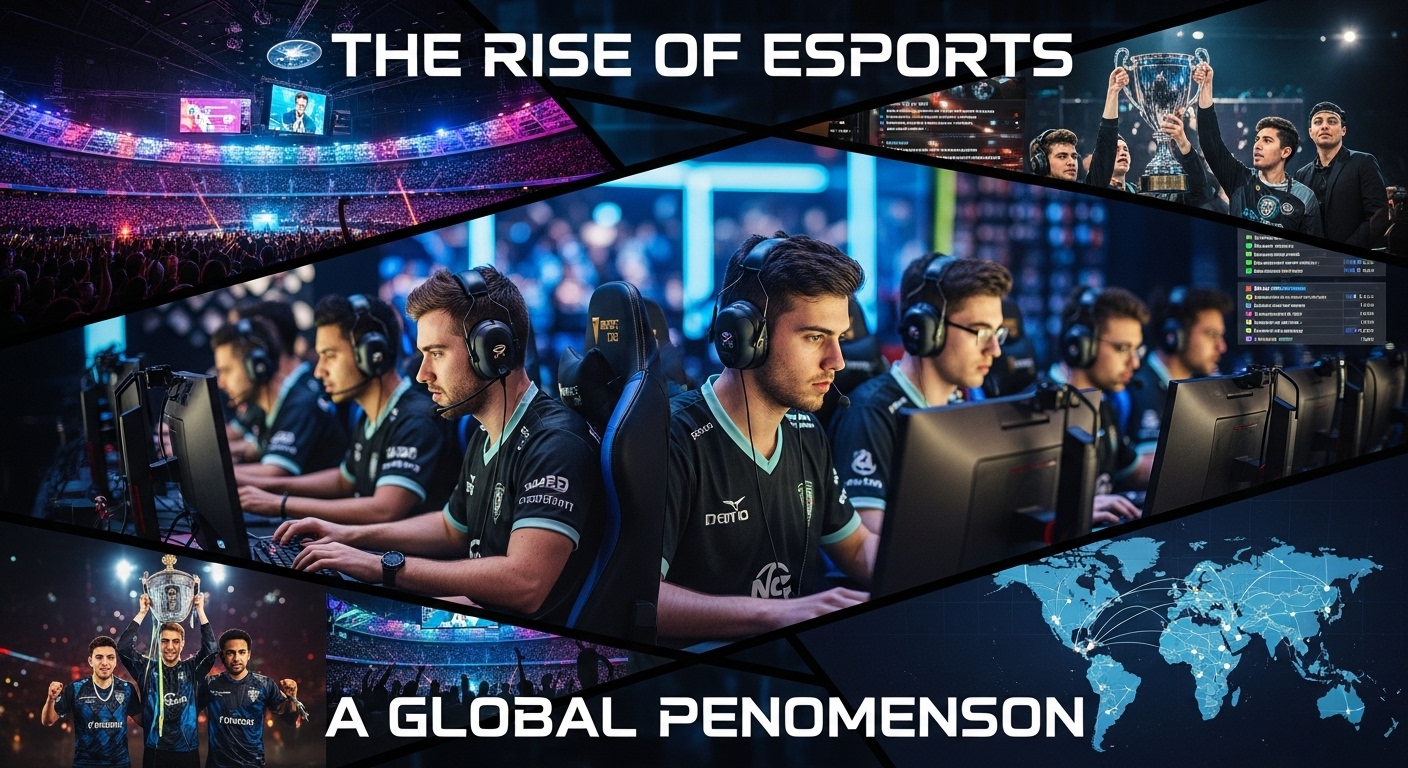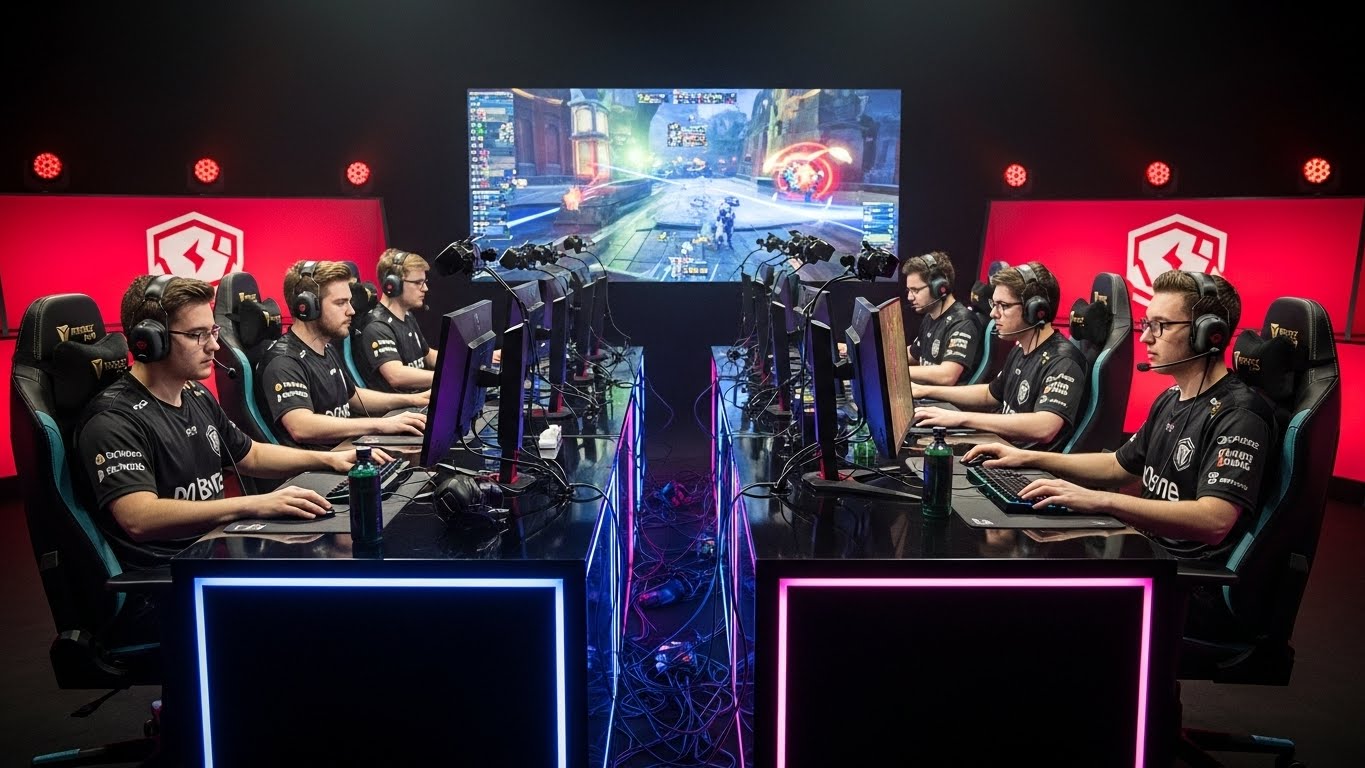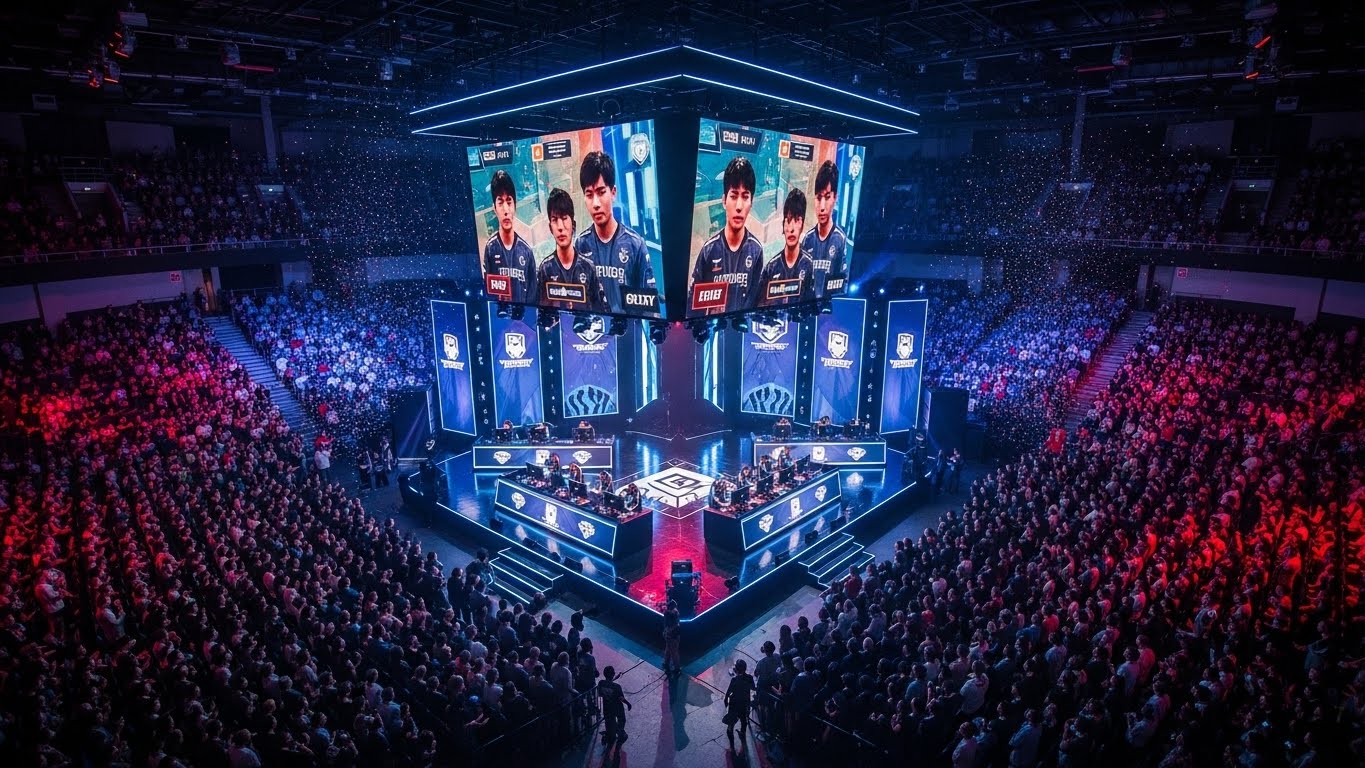Introduction to the World of Esports
In the last two decades, the gaming industry has transformed beyond anyone’s imagination. What once began as small-scale competitions between friends in dimly lit arcades has evolved into a multi-billion-dollar global phenomenon known as Esports. The term “Esports” refers to organized, competitive video gaming, where players and teams compete for glory, sponsorships, and massive prize pools. From amateur gamers playing for fun to professional athletes performing in packed stadiums, Esports has redefined the meaning of sportsmanship, entertainment, and digital culture.
Esports isn’t just about playing games anymore—it’s about teamwork, strategy, skill, and mental resilience. It’s an entire ecosystem involving players, coaches, sponsors, event organizers, broadcasters, and millions of fans watching live streams from around the world. As traditional sports evolve with technology, Esports has emerged as a parallel universe where pixels and precision rule the arena.
The Origins of Competitive Gaming
The history of Esports dates back to the early 1970s when students at Stanford University held a small competition on the game “Spacewar.” The winner took home a year’s subscription to a magazine—a humble beginning compared to the million-dollar prizes of today. During the 1980s, video games became mainstream, and arcade gaming gave birth to a competitive spirit among players who wanted to achieve the highest score.
By the 1990s, the arrival of home consoles and personal computers revolutionized gaming accessibility. The internet connected players globally, enabling them to compete without being in the same room. Games like “Street Fighter,” “Counter-Strike,” and “StarCraft” became the foundations of modern Esports. The first major tournaments began to appear, and as technology advanced, so did the scale and ambition of Esports competitions.
The Growth of Esports in the 21st Century
The 2000s marked the true rise of Esports as both an industry and a cultural movement. With the emergence of online multiplayer games, professional leagues began forming around titles like “League of Legends,” “Dota 2,” and “Call of Duty.” Streaming platforms allowed fans to watch their favorite players in real-time, turning gamers into celebrities with massive fanbases.
The introduction of high-speed internet and better gaming hardware further accelerated the growth of Esports. Events such as The International, organized for Dota 2, began offering multi-million-dollar prize pools funded by the community itself. Stadiums once used for traditional sports started hosting Esports tournaments, selling out tickets and broadcasting events to millions online.
Today, Esports has become a legitimate career path. Players train like athletes, teams employ nutritionists and psychologists, and organizations sign sponsorship deals with global brands. This growth has also led to the creation of Esports management companies, training academies, and even college scholarships for gamers.
Popular Esports Titles Around the World
Esports thrives on diversity, with multiple genres and titles catering to different audiences. Some of the most influential and popular Esports games include:
1. League of Legends – A strategic multiplayer online battle arena (MOBA) game known for its fast-paced action and tactical gameplay. The League of Legends World Championship attracts millions of viewers annually.
2. Dota 2 – Another MOBA game famous for its complexity and massive prize pools. Its global tournament, The International, is often cited as one of the most lucrative events in Esports history.
3. Counter-Strike: Global Offensive (CS:GO) – A first-person shooter emphasizing teamwork and precision. It remains one of the most iconic titles in competitive gaming.
4. Fortnite – A battle royale sensation that mixes building mechanics with action. It has bridged the gap between gaming and mainstream entertainment.
5. Valorant – A newer entrant that combines tactical shooting with unique character abilities, quickly becoming a favorite among competitive players.
6. FIFA and NBA 2K – Sports simulation games that replicate real-world sports, allowing fans of football and basketball to experience their favorite sports digitally.
These titles represent only a fraction of the Esports universe, but each has contributed to building an ecosystem that blends gaming skill with global entertainment.
The Esports Ecosystem: Beyond the Players
Esports is far more than just players and teams. It’s a complete ecosystem that involves various stakeholders working together to deliver an engaging experience to fans. Event organizers plan massive tournaments, sponsors invest millions to associate their brands with the growing audience, and broadcasters deliver high-quality streams to millions of viewers.
Coaches analyze gameplay to enhance team performance, while analysts break down match data to create new strategies. Commentators, known as casters, narrate the action live, bringing energy and excitement to the experience. Behind the scenes, developers continuously update games to maintain competitive balance and keep players engaged.
Media coverage and fan engagement play a vital role in shaping Esports culture. Just like in traditional sports, dedicated journalists, photographers, and content creators contribute to storytelling, giving fans a deeper connection with their favorite teams and players.
The Global Appeal of Esports
One of the defining features of Esports is its global nature. Unlike traditional sports, which can be limited by geography or climate, Esports exists entirely in the digital world. This makes it accessible to anyone with a computer, console, or even a smartphone.
Countries like South Korea, China, and the United States have become powerhouses in the industry. South Korea is often credited as the birthplace of professional gaming, with StarCraft tournaments televised nationally as early as the 2000s. China’s massive gaming population and government support have helped build huge infrastructures for Esports, while the United States and Europe have embraced the industry through professional leagues and collegiate programs.
Esports has also made a significant impact in emerging markets such as India, Brazil, Pakistan, and the Philippines, where mobile gaming has unlocked new opportunities for millions of young gamers. The combination of affordable smartphones and improving internet connectivity has democratized access to competitive gaming across the world.
The Economics of Esports
The Esports economy is built on multiple revenue streams—advertising, sponsorships, media rights, ticket sales, and merchandise. Global brands such as Nike, Red Bull, and Intel have entered the scene, sponsoring teams and events. Game developers also generate revenue through in-game purchases and licensing deals.
Prize pools for major tournaments can reach astonishing figures. The International’s prize pool has exceeded forty million dollars, while League of Legends and Fortnite events also distribute millions annually. Teams sign players with lucrative contracts, and successful streamers earn additional income through platform monetization and brand endorsements.
Esports organizations operate much like traditional sports franchises, managing rosters, marketing, and fan engagement. Investors see Esports as a high-growth sector, leading to the creation of dedicated Esports arenas, training facilities, and even television channels focusing solely on gaming competitions.
Training and Discipline in Esports
Professional gamers train rigorously to stay competitive. Their schedules often include eight to twelve hours of practice each day, along with physical fitness routines to maintain health and mental clarity. Contrary to stereotypes, top players treat gaming as a sport that demands discipline, focus, and teamwork.
Teams also employ mental coaches to help players handle stress and maintain composure during high-stakes matches. Nutritionists ensure players eat balanced diets to sustain concentration during long sessions. With millions watching, every move counts, and a single mistake can determine victory or defeat.
The physical strain of gaming—such as wrist injuries and eye fatigue—is taken seriously. Many organizations encourage players to balance screen time with physical exercise and meditation to prevent burnout.
Esports as a Career Path
The notion of gaming as a viable career was once met with skepticism, but today, Esports offers numerous professional opportunities. Beyond being a player, individuals can work as coaches, event managers, commentators, content creators, game designers, or analysts. Universities now offer scholarships and degree programs in Esports management, preparing students for roles in this growing industry.
Streaming platforms have created new avenues for income, allowing players to build personal brands and connect directly with their audiences. Some Esports athletes even transition into entrepreneurship, starting their own gaming organizations or merchandise brands.
The Role of Technology in Esports Evolution
Technology is the backbone of Esports. The constant improvement of graphics, internet infrastructure, and hardware has fueled the growth of competitive gaming. High-refresh-rate monitors, precision peripherals, and low-latency connections ensure that players can perform at their best.
Cloud gaming and artificial intelligence are shaping the future of Esports further. AI-driven analytics help teams study opponents and improve strategies. Virtual reality and augmented reality promise to make gaming even more immersive. Meanwhile, blockchain technology is being explored for transparent player contracts and digital asset ownership.
The Social and Cultural Impact of Esports
Esports has become more than just competition—it’s a cultural movement that brings people together across borders. It promotes diversity, teamwork, and global unity. Fans from different countries cheer for teams from regions they may have never visited, fostering international connections through shared passion.
Esports has also played a significant role in breaking stereotypes about gaming. Once considered a hobby for teenagers, it is now seen as a professional discipline requiring intelligence, strategy, and coordination. The inclusion of women and non-binary players is growing, with initiatives promoting diversity and inclusivity in the gaming community.
In many ways, Esports has become a digital social space. Communities form around favorite games, creating friendships that transcend language and culture. Events, conventions, and online platforms act as gathering points for millions who share a common love for competition and creativity.
Challenges Facing the Esports Industry
Despite its growth, Esports faces several challenges. Player burnout, lack of standardized regulations, and uneven revenue distribution are ongoing issues. The industry also grapples with the need for long-term sustainability, as rapid expansion sometimes leads to unstable team finances or short-lived tournaments.
Toxic behavior and cheating remain persistent concerns, prompting developers to invest heavily in fair play systems and moderation tools. Additionally, the balance between commercialization and maintaining community spirit continues to be debated. Ensuring that Esports remains accessible and enjoyable for all players is essential for its continued success.
The Future of Esports
The future of Esports looks brighter than ever. With the integration of emerging technologies, the line between physical and digital competition will continue to blur. Virtual reality tournaments, AI-powered coaching, and cross-platform competitions are on the horizon.
As the industry matures, we can expect better player protections, more structured leagues, and global recognition similar to traditional sports. The possibility of Esports being included in major sporting events, such as the Olympics, is already under discussion. Educational institutions will further integrate Esports into their curricula, nurturing the next generation of professionals who will drive the industry forward.
The role of Esports in entertainment will only expand, merging gaming with music, fashion, and pop culture. Already, we see artists performing at gaming events and brands using Esports as a bridge to reach younger audiences. The digital athlete of tomorrow will be a global icon representing skill, creativity, and passion.
Conclusion
Esports represents the evolution of human competition in the digital age. It combines the excitement of traditional sports with the innovation of modern technology. From humble beginnings in small gaming arcades to sold-out arenas and international fame, Esports has carved out its place as one of the most influential industries of the twenty-first century.
What makes Esports special is its inclusivity—it belongs to everyone. Whether you are a casual gamer, a professional competitor, or simply a fan, Esports offers a world of opportunity and entertainment. It’s a testament to how passion, technology, and community can merge to create something extraordinary.
The story of Esports is still being written, and its next chapters will undoubtedly push the boundaries of what we think competition, entertainment, and connection can be.



